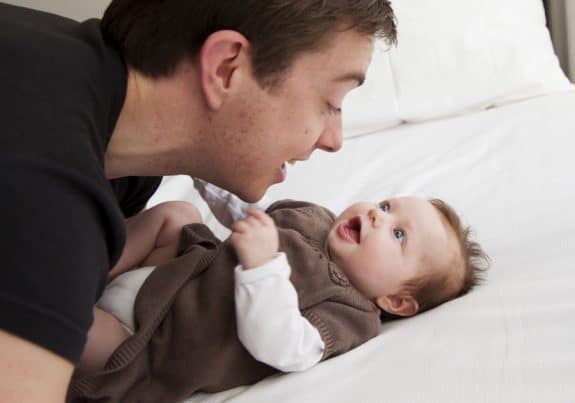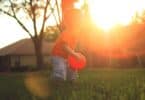Several previous studies have supported the idea that newborns imitate their parents and are born with that ability. A group of researchers from the University of Queensland in Australia decided to take a closer look, setting out to examine imitation gestures in babies that might be linked to other aspects of social behavior.
For the study, Virginia Slaughter and her university research team studied 106 infants, scoring their responses to tests administered starting from the first two months of life. They began by measuring the level of tongue protrusion and mouth opening before presenting the infants with 11 different gestures: opening the mouth, poking the tongue out, making a sad face, a happy face, pointing an index finger, grasping, making an “eee” sound, a clicking sound, and an “mmm” sound among the gestures displayed.
After interacting one-on-one with each baby, the children’s measurements were taken again.
The babies did poke their tongues more frequently after seeing an adult do the same, but the study authors concluded that rather than imitating what they saw the infants were equally likely to produce a different gesture than to mimic the one they observed. The team concluded there was no credible evidence that infants are born capable of imitation.
These researchers say that “infants are not born with an ability to copy what other people do, but it is a skill that they acquire in the first months of life.” They suggest that this skill may begin to emerge when the baby is around 6-8 months old.
Slaughter believes that other studies have reached different conclusions because they offered the infants a very limited number of gestures, primarily poking out the tongue and opening the mouth. She says that “if infants increase tongue protrusions when an adult models a happy face or finger pointing, it’s not a case of imitation but likely excitement at seeing an adult do something interesting.”
Researchers hope that parents whose infants don’t appear to imitate them will not worry and will understand that this is normal behavior, and realize that in time their baby will develop this skill.







